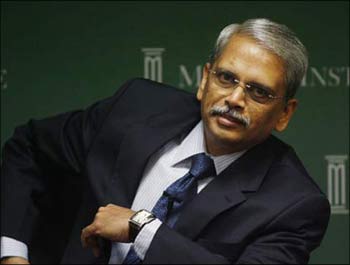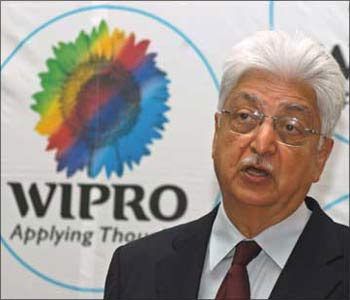
India's domestic BPO market, with nearly 500 players, is set to grow at a CAGR of 33.3 per cent to touch revenues of $6.82 billion by 2013, up from $1.62 billion recorded in 2008.
A detailed report on the sector by global IT intelligence firm, IDC India, reveals that the industry would evolve into third-party 'transformational outsourcing' relationships from the existing captive dominated market structure.

This implies that rather than merely running isolated processes for customers, BPOs would engage more deeply to identify and transform core business processes to add greater market value in the 'creation and delivery of end products and services'.
IDC is a global provider of market intelligence, advisory services, and events for the information technology, telecommunications, and consumer technology markets.

The industry currently offers a range of services from customer care to research and analytics. The BFSI vertical contributes the lion's share of 37 per cent to revenues, followed by Telecom contributing one-fourth to it.
Other verticals -- utilities and services, energy, food and hospitality, aerospace and automotives, consumer durables, government -- contribute 17 per cent, while the travel segment contributes 8 per cent to the revenue.

Positive market indicators of an economic recovery, unbundling of mega outsourcing deals and large unaddressed white spaces such as regional language services support the current optimism that the domestic BPO industry would be able to achieve its aspired growth target over the next five years.
BFSI, Telecom, Utilities, Travel and Hospitality segments of the BPO industry are expected to continue to grow over the forecast period.

However, it is non-English BPOs in Tier-II and Tier-III centres that can provide services to the Telecom and Aviation sectors at a lower overall cost that are expected to play an increasing role in the growth of domestic outsourcing industry, says the IDC India study.
Currently, such sub-regional/local BPOs are estimated to have capabilities to offer services in 10-15 Indian languages.

With rapidly developing infrastructure, availability of trained manpower, better connectivity and lower real estate costs, Tier-II and Tier-III cities like Kochi, Nagpur and Chandigarh have fast emerged as the new BPO 'go to' destinations, says the IDC India study.
However, higher training costs in Tier-II and Tier-III cities and lack of availability of an adequate talent pool continues to be an area of concern for players.

"The domestic BPO market shows promise of growth, especially in verticals like BFSI and Telecom in the short term", says Arpan Gupta, lead analyst for the BPO, industry verticals and government sector at IDC India.
"The concern areas for the BPO industry, that services overseas customers, such as rupee-dollar volatility, rising infrastructure costs in Tier-I cities, over dependence on North American and European markets are expected to have minimal impact on the domestic BPO sector", adds Arpan.

Voice processes in the Indian domestic BPO market contribute 55 per cent to the overall domestic revenues while non-voice market makes up the rest.
"As the industry enhances focus on human resource outsourcing, legal process outsourcing, billing and high-end analytics, the BPO market would see a gradual shift from voice processes to non-voice processes," Arpan further added.